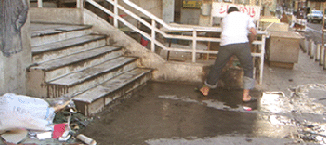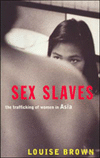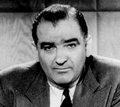
Baghdad: Life During Wartime
[Photo: A man cleans up glass and blood after a suicide attack]
Two and a half years into the occupation, war still rages on in Baghdad, Iraq. Two of the deadliest attacks in the last month occurred at the Palestine Hotel and the Hamra Hotel. Although Westerners frequent these hotels, the casualties were almost exclusively Iraqis living and working in the area. Yet just a few hours after the attacks, citizens were back on the streets, as if nothing had happened.




.gif)
